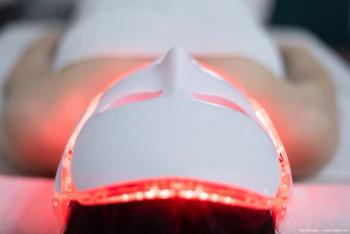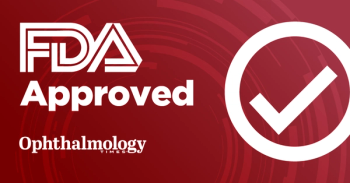
- Ophthalmology Times: October 1, 2020
- Volume 45
- Issue 16
Pre-operative IOP hints after cataract surgery
Elevated pressure can lead to irreversible optic nerve damage, vision loss
This article was reviewed by Madeline Hay
Elevated IOP after cataract surgery is the most frequent complication postoperatively and can lead to irreversible optic nerve damage and vision loss if not treated.
There remains a question, however, about the utility of using preoperative IOP as a predictor of IOP the day after cataract surgery in patients without glaucoma and ocular hypertension (OHT).
Although the long-term effect of cataract surgery is decreased IOP, a transient elevation of IOP is the most common complication in the days after
Related:
Hay and her colleagues wanted to determine how preoperative IOP relates to the IOP on the first day after an uncomplicated cataract surgery with IOL implantation in patients without glaucoma or OHT.
The investigators conducted a retrospective analysis of IOL implantation surgical data between January 1, 2016, and June 1, 2018, in patients older than 60 years who did not have glaucoma, OHT, pseudoexfoliation syndrome or pigment dispersion syndrome; the study also excluded patients whohad a history of IOP elevation in response to steroids, poorly dilating pupil, ocular trauma, or current use of IOP-lowering eyedrops.
The IOP was measured preoperatively and postoperatively within 16 to 30 hours after surgery.
Related:
Results
The investigators reported that 288 eyes were included; 56.9% of patients were women and the average patient age was 73.4 years. The average preoperative IOP was 15.98 mm Hg compared with the average IOP on day 1 postoperatively of 19.47 mm Hg.
Results indicated that the preoperative IOP was a significant (P < 0.0001) predictor of the IOP 1 day after surgery.
Hay concluded that elevated preoperative IOP was associated with 1-day postoperative IOP elevations in patients without glaucoma or ocular hypertension following uncomplicated cataract surgery.
“This knowledge may help clinicians to identify patients at significantly increased risk for IOP-related complications,” she said. “Accordingly, this provides meaningful evidence in support of prophylactic preoperative treatment in high-risk patients to prevent loss of vision due to postoperative IOP elevations.”
--
Madeline Hay
e:[email protected]
Hay has no financial interest in this subject matter.
Articles in this issue
about 5 years ago
Antibiotic-steroid combination boosts confidence with deliveryabout 5 years ago
Probe of IRIS registry: Anti-VEGF injections key treatment for PDRabout 5 years ago
Small-aperture single-piece IOL could fill unmet need in patientsabout 5 years ago
Retinal implant improves quality of life in patients with RPover 5 years ago
Antihyperglycemic drug linked to reduced risk of new onset AMDover 5 years ago
Intravitreal implant offers anatomic, visual improvementover 5 years ago
Anti-VEGF monotherapy targets vitreous hemorrhages in PDRover 5 years ago
AAO 2020 broadens opportunities with virtual meetingNewsletter
Don’t miss out—get Ophthalmology Times updates on the latest clinical advancements and expert interviews, straight to your inbox.





























